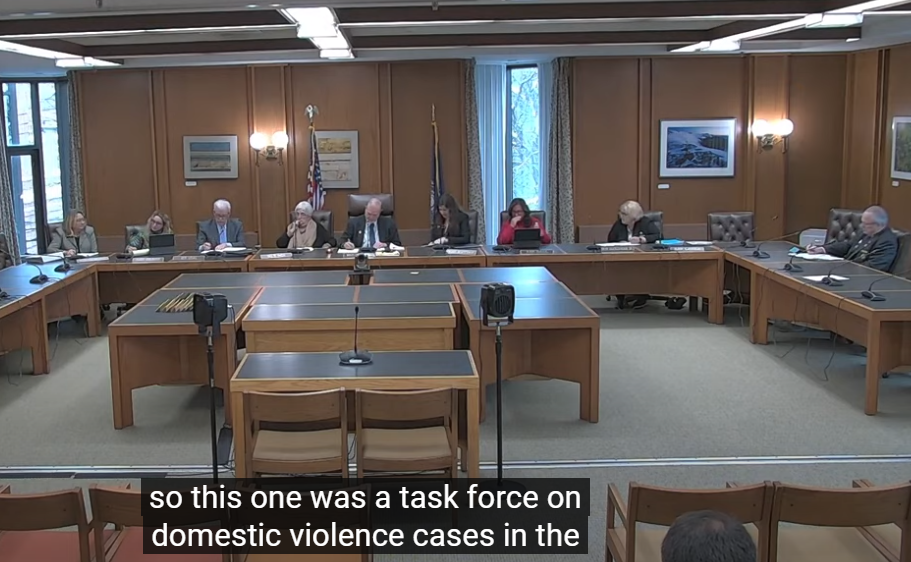By PAULA TRACY, InDepthNH.org
CONCORD – As the House of Representatives special committee on the family division of the state Circuit Court system begins to wrap up its work and make recommendations to the legislature, this winter it is clear that they want to see more support staff for the courts and better explanations from judges on their decisions, particularly as they relates to excluding evidence.
The committee heard concerns brought by litigants – mostly those going through divorce with children involved – many of whom argued that there are inconsistent rulings in family courts and that a small number of judges appear to be biased toward one group or another.
This led to months of hearings and a number of subcommittees.
State Rep. Marjorie Smith, D-Durham, vice chair of the special committee and chair of a subcommittee, said a preliminary, interim report, which could be voted on by the committee next week would look to provide more staff, educational support for judges and suggest more explanations be included as to why they made their calls as they did, to allow litigants to better understand the basis of the rulings and help ensure the public believes the decision made is wise, fair and impartial.
Smith said the last thing that the legislature should be doing is the Judicial branches’ business.
But while the legislators heard concerns that judges don’t explain their reasons, she said
the judges may not now have the time to say “‘and the reason I decided ‘X’ is because this was the testimony, this is what I found from supporting or opposing documents, this is where I ended up where I did. It is all well and good to make a decision but unless people know why that decision is made, it might be very hard for them to accept it. So all of that can be helped if there was enough staff support.”
Smith said she was surprised to hear some suggest a judicial training college.
“With all due respect, we are a long way from needing a training college. What we need is someone on the staff who has responsibility for making sure that every judge has access to the training that is essential for them to carry out their jobs and that they have the time to take advantage of the training not six months or 12 months after they have started in the family court but at the beginning. And all that I understand costs money and the money component is the responsibility of the legislature. But it is important for the judicial branch to understand – to be committed to explaining to the legislature, which is a better way of putting it, I think, that they understand the need for training, the need for supervision, the need for accountability and that they in fact have a plan to do that.
“I hope you will accept the fact that our report that we will submit to you next week will be a preliminary report and I am hoping we will have opportunity to do a lot more in terms of identifying best practices across the country and relating those to the realities of how the New Hampshire court system operates in the hope that we can get all of us closer to the best possible system,” Smith said.
State Rep. Mark Pearson, R-Hampstead, chair of the special committee, said Republican leadership is beginning to warm up to the idea for more funding in the next budget cycle for the courts to get more funding and the Judicial Branch may have a recommendation.
He also gave a report as chair of the subcommittee on the rules of evidence and said that he has learned that judges have to be able to use their discretion and that the document is “guidance.” He said there should not be legislation which ties the hands of judges.
But there may be an opportunity to suggest that there needs to be a significant increase in judges explaining their reason for including or excluding evidence. Also, monitoring judges, educating and in some rare cases, disciplining judges.
The special committee meets to finalize their recommendations Nov. 14.






